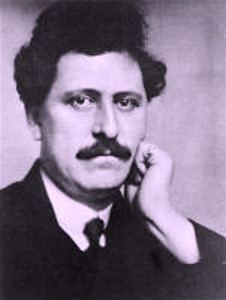 Found in a copy of the literary periodical Today for August 1919 is this advice for aspiring authors from its editor, Holbrook Jackson (pictured):
Found in a copy of the literary periodical Today for August 1919 is this advice for aspiring authors from its editor, Holbrook Jackson (pictured):
- Typewrite your copy or handwrite it clearly
- Write you name and address clearly on the back of last page of typescript or manuscript.
- Enclose not a loose stamp, but a stamped and addressed envelope
- Don’t write a letter of explanation to the Editor. But if you do write—
- Don’t tell him your stuff is good—he won’t take your word
- Don’t tell him it is bad —bad writing needs no bush
- Don’t tell him your friends like it—he doesn’t care
- Don’t say that another editor advised you to send it along—that would make him suspicious
- Don’t say you want to earn money by writing—he is not out to help you, but to edit his paper and pay those who help him.
10. Don’t flatter him—-editors are cynics
11. Don’t tell him you know his old aunt—he may hate her
12. Don’t ask his opinion—he may not have one
13. Don’t ask why he rejects your offer—he may not know
Writers may protest that this is very much skewed in favour of an editor, but they forget that ( to use that old adage) ‘ the editor’s decision is final’. If he fills his magazine with writing that his readers dislike, the circulation will go down and he will get the sack. So many writers are solipsists in this regard.
Incidentally, concerning item 11 Malcolm Hulke, the well known TV scriptwriter, offering advice seventy years later in The Artists and Writers Yearbook, warned potential writers that the fact that their mother knew the tea lady at Pebble Mill doesn’t make it more likely that their script will be accepted. [R.M.Healey]
